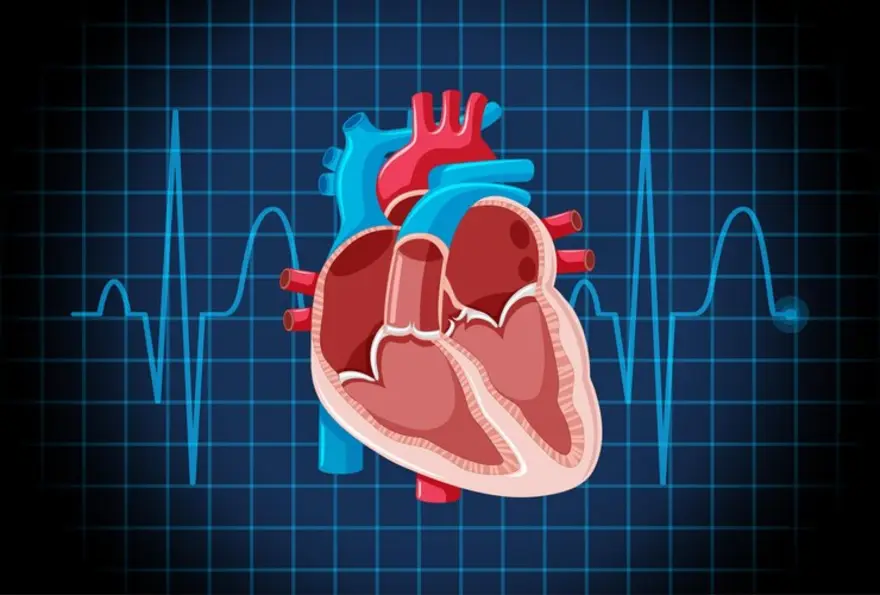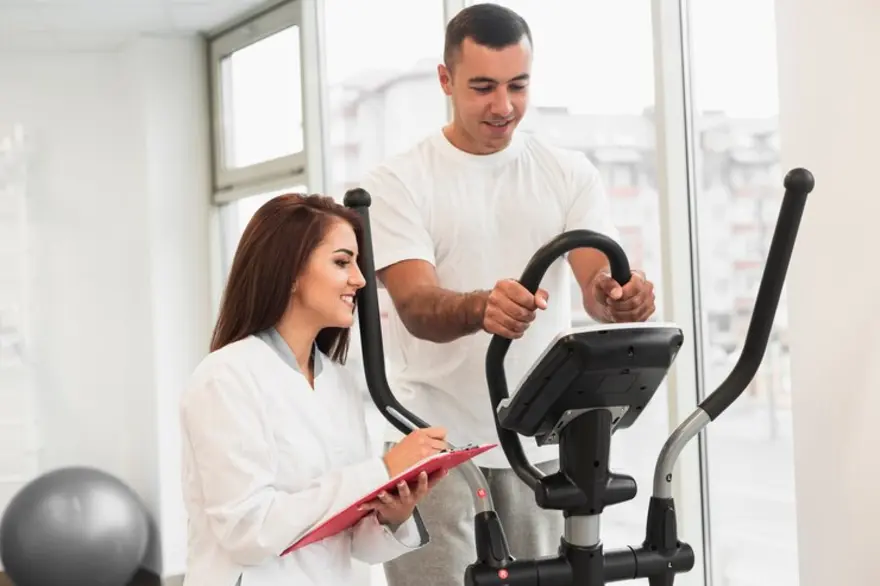Metropolis TruHealth checkups
Could you be Addicted to the Internet, This is How it Feels and Tips to Help Yourself
Internet addiction disorder Find yourself distracted and restless to check your smartphone while being in an office meeting? Cannot sleep without moving to the next level of your current favorite online game? Well, it might be Internet Addiction Disorder. It refers to an excessive, problematic, compulsive use of the internet. It is a growing problem in today’s time, affecting adolescents and adults likewise. How does Internet addiction affect you? It might not appear as a grave concern at first but eventually the ill effects become quite prominent as they begin impacting your day-to-day life: Reduces your ability to concentrate and think deeply or creatively: The persistent pings or notifications of your smartphone can distract while you are trying to focus on important tasks, impede your work, and interfere with those quiet moments that are quintessential to creative thinking. Precipitates loneliness and depression: You may feel quite engaged and lost in yourself while being online, but the overuse ultimately results in negative feelings such as loneliness and depression. You may be trying to kill the boredom with the internet, but it can actually make you feel even worse due to feeling guilty of wasting your time on useless stuff.Also, social media predisposes users, especially teens, to compare their life and experiences unfavorably with their peers, that promotes feelings of failure, loneliness and depression. Fuels anxiety and reduces me- time: One study has found that compulsive use of smartphones tends to make people more anxious and perform poorly on assigned tasks. The heavier a person’s phone use, the less time one gets for self-care. Linger on the Internet for hours and end up having guilt? Make a healthy use of this “online” time and book yourself a comprehensive health checkup. Book here. Increases stress: You may have FOMO (fear of missing out) if you miss out on that one buzz! You may feel pressured to always be online and continually checking and responding to pings. This habit can lead to higher stress levels and even burnout in the long run. Interrupts your sleep: Overuse of smartphones is a well-known culprit to disrupt your sleep. It can impact your memory, metabolism, energy levels, and reduce your cognitive and learning skills. Can give withdrawal symptoms just like any other addiction: When you try to cut back on your smartphone use, it is not unlikely to get restless, angry or irritable, sleep deprived and anxious Change your internet use, one step at a time Unlike other substance addiction, it is impossible and impractical to completely refrain from your smartphones and internet. It has become a part and parcel of life, so the trick is to modify your internet usage step by step and cut back to more healthy levels of use. Fix times when you cannot use your smartphone: Keep your phone out of your easy reach while you need to attend an important meeting or assignment. This applies to household work as well. Schedule internet use for certain free times of day, once you’ve completed an assignment or finished a chore. Do not sleep with your smartphones or tablets: Screens of digital devices emit blue light, which can disrupt your sleep. Do not use any screen 1-2 hours before you sleep. Turn your devices off or at least leave them in another room overnight. Forego eBooks on your phone or tablet at night and read directly from a book. Have alternative ways to fill the free time: Feeling bored? Use this time to nurture a hobby or cultivate a new hobby, meditate, read a book, or chat with friends in person. Use the free time to get indulged in healthier activities. This helps resist the urge to use the internet. Remove unnecessary, social media / shopping / gaming apps from your phone: It is okay to keep some apps to serve your needs. But it is not important to have numerous apps that are just there to eat your time away. If you find yourself compulsively checking social media apps, challenge yourself and stray away from opening them for some specified time period or a day. Remember what you see of others on social media is hardly a reflection of their lives- it is merely exaggerating the happy aspects of their lives, and brushing over the disappointments. Instead, speak to an elderly or a friend about any issues you might be facing. Have a sense of self-worth. Make use of technology to beat technology: there are various apps that can automatically limit when you’re able to access your phone. Even smartphones are coming with features to avoid internet addiction. Make use of such useful features. Cull your fear of missing out: It is okay to miss out on certain breaking news, or that new gossip. Accept that you were doing more meaningful stuff at those times. Seek help from mental health experts: If you think self-help is not enough to overcome the internet addiction disorder, consult an expert. Cognitive-behavioral therapy is an important modality for treatment of smartphone and Internet addiction. Nowadays, specialists offer digital detox programs to help you disconnect from digital media and stay connected with your inner self. Group therapy can also give you a moral boost in curbing your internet and phone use.An expert can also help you learn healthier ways of coping with negative feelings including depression, stress, or anxiety, or depression.Make sure to keep a check on your Internet use habits. Have a healthy mind and body- both online and offline!
7 Scientific Tips for Aging Gracefully
The population of the world, as a whole, is living longer. It is thus essential to implement proactive steps to create changes at both individual and environmental levels, which can promote aging in a better way. The concept of aging well is a fundamental requirement to improve health and well-being in order to enhance length and quality of life. Aging well highlights the importance of maintaining a healthy lifestyle and keeping wellness on priority while growing older. Here are 7 scientific tips that can help you age gracefully: Keeping physically active It has been observed that poor health in old age is mainly caused due to the effects of multiple lifestyle choices, such as physical inactivity, poor diet, and smoking. Regular exercising lowers the risk of several diseases such as cardiovascular disease, diabetes, etc. Several studies also suggest that aerobic exercises may improve the symptoms of Alzheimer disease. Moreover, certain evidence have demonstrated the beneficial effect of physical activity on aging at cellular levels, causing an increase in energy, flexibility and overall sense of well-being. Various types of physical activity that can be done are: Simple exercises such as walking, jogging, yoga, weight lifting or a dance class possess multiple benefits as they can control weight, uplift mood, and makes you sleep better A 30 minute-walk every day, it can also be broken into shorter strolls It has been recommended that an adult should do 2½ - 5 hours per week of moderate-intensity exercise, 1 ¼ - 2 ½ hours per week of vigorous-intensity aerobic exercises, or a combination of these two. If you haven’t been exercising, discuss with your doctor about how you can get started gradually. Eating a balanced diet Diet is shown to play an active part in how well you age. Nutritious diet helps in keeping an individual mentally sharp and gives energy to enjoy day-to-day activities. Eating a balanced diet not only helps you age well, but also prevent oneself against various diseases such as heart diseases, diabetes, etc. Numerous studies have shown that chronic illnesses, particularly auto-immune diseases such as fibromyalgia and arthritis, can be associated with our diet, hence, a diet rich in anti-inflammatory components such as fresh fruits and vegetables is recommended. In addition, avoiding processed food with a higher glycemic index can raise your BMI, increase your waistline, and raise your blood sugar. Enough vitamin D level is essential as it helps contribute to bone health as you age. Salt should be kept to minimum to prevent high blood pressure. The recommended diet for aging well should include the following: Fruits and vegetables Whole-grain cereals, breads, rice, or pasta Lean protein, such as fish and beans Low-fat or fat-free dairy, such as milk, yogurt or cheese that contain vitamin D Focusing on mental health Mental health is very crucial as happiness with less stress levels can help a person age gracefully and liver longer and healthier. Various tips for improving your mental health includes: One should practice the habit of staying optimistic. Keeping a positive outlook can cure stress associated with life problems. One should stay connected as loneliness is harmful for your mental health. A lonelier individual has higher levels of stress hormones that cause inflammation, linked to disorders like arthritis. Meaningful relationships and a strong social network enhance both mental and physical well-being and longevity. Learn to embrace different aspects of life with a positive attitude. Find new hobbies as exploring new and meaningful things can provide a sense of purpose and keep your anxiety levels to minimum. Keep yourself busy to lessen stress about things you can’t control. Getting enough sleep The sleeping habit of an adult in this era has been greatly affected by changed lifestyle and work pressure. This sleep-deprived state in turn, leads to fatigue and premature aging of body cells. It has been observed that insomnia is more common in older adults. Thus, sticking to a sleeping schedule is important as it can keep a body in sync for appropriate sleep. For an uninterrupted sleep: Keep the room a little cooler and dark Avoid caffeine or alcohol in the evening Avoid electronics before bedtime which emit blue light. Usually sleeping hours are majorly dependent on your age, an 8-hours sleep is recommended for an adult for better mental and physical health. It has been reported that our skin cells build and repair themselves during sleep, and that’s why we feel renewed and rejuvenated. Beneficial effects of appropriate sleep include: Reducing stress and anxiety Lowering the risk of heart disease and stroke Reducing the risk of obesity Improving focus and concentration. Restricting smoking and alcohol consumption Smoking and alcohol, both have shown many negative effects on the process of aging. Cigarettes, chewing tobacco, and other products with nicotine can cause ailments like heart disease, cancer, lung and gum disease, etc. Similarly, limit your alcohol consumption to avoid risk of health diseases including liver ailments. Quitting smoking isn’t easy, but there are resources that can help you quit. Seek the help of a healthcare professional. It has been reported that your body begins to heal within 20 minutes of your last cigarette. Scheduling health tests on time As you age, your body organs also age. The aging body organs are more prone to get diseased and less likely to repair themselves. By getting your health tests done regularly, you are keeping an eye on the aging body. This helps to identify any health condition at an early stage, and take action. Ensure to get a full body check up done twice a year. Maintain hydration Hydration is vital to our bodies as drinking water regularly helps in releasing out toxins and aids in digestion. Additionally, it aids in sleeping better, and improves focus and weight loss. Adequate water intake can also help you avoid dry, flaky skin and fine lines, which in turn, can help your skin look younger.
Dear Women, this is why it is extremely important to take care of YOU and your health
A woman juggles multiple roles and relationships in her life - a daughter, a sister, a wife, a mother, homemaker, professional - these are the traditionally accepted roles of women all over the world. Over the years, women are more determined to pursue education and follow their interests in the field of their choice. This new dimension adds to a woman’s responsibilities and tasks. Women are now into demanding jobs like managerial positions, head of institutions, administration, media, science, academics, research etc., but she also expected to be a good homemaker. Women drain themselves in maintaining a balance. In 2018 GCI Health launched the HealthiHer movement, conducting a survey which concluded that almost 97% of women experienced a moderate to high level of stress, citing family responsibilities and stress on the job as the two were the top contributing factors. Workload on Indian women is much more than their male counterparts. So, what do we do ladies? Give yourself up to the ‘Stress’ and expose ourselves to associated diseases?? Well...NO!! Put your Health on Priority. Neglecting your health exposes you to various diseases and risks and that is the last you want, right? Manage stress better – Plan in advance and learn to prioritize Meditate or practise yoga setting aside even 10 minutes leaves you calmer to start the next day Quit fad diets and sugars Eat fresh – Eat home cooked meals, avoid eating processed foods and junk meals Find at least 30 minutes per day to exercise or a cardio activity Attend menstrual discomfort/ irregularities. Consult a gynaecologist. Get enough sleep – to heal and repair your body Stay hydrated Do not skip meals Our special women's health check-up includes a list of comprehensive tests like Thyroid, Vitamin D, FSH and more for women of all ages to detect any onset of diseases. Avail the blood collection at home service to get a health check-up as per your convenience. Women must get medical tests /regular screening done on time. It is highly recommended that women must take the following medical screening tests once they have crossed 35 years of age: 1. Pelvic Examination 2. Breast Examination 3. Bone Density Test 4. Thyroid Test 5. Diabetes Screening 6. Lipid Profile Tests 7. Vitamin D Test 8. Heart-Health Test It is not a myth - women really are better than men at multitasking!! According to a research paper in the journal BMC Psychology, women were faster and better organised than men when switching rapidly between tasks in tests by UK psychologists. Let's keep this trend going the way it is, don’t let stress and neglect bring us down!! For ore on Women's Health checkup, click here Contributed by Dr. Bhavana Sontakke, Gynecologist
 Home Visit
Home Visit Upload
Upload

















 WhatsApp
WhatsApp